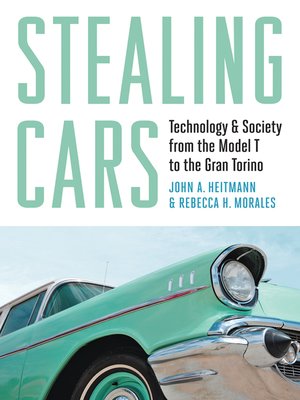Stealing Cars
ebook ∣ Technology and Society from the Model T to the Gran Torino
By John A. Heitmann

Sign up to save your library
With an OverDrive account, you can save your favorite libraries for at-a-glance information about availability. Find out more about OverDrive accounts.
Find this title in Libby, the library reading app by OverDrive.



Search for a digital library with this title
Title found at these libraries:
| Library Name | Distance |
|---|---|
| Loading... |
The technology-thwarting car thief has become as advanced as the cars themselves.
As early as 1910 Americans recognized that cars were easy to steal and, once stolen, hard to find, especially since cars looked much alike. Model styles and colors eventually changed, but so did the means of making a stolen car disappear. Though changing license plates and serial numbers remain basic procedure, thieves have created highly sophisticated networks to disassemble stolen vehicles, distribute the parts, and/or ship the altered cars out of the country. Stealing cars has become as technologically advanced as the cars themselves.
John A. Heitmann and Rebecca H. Morales's study of automobile theft and culture examines a wide range of related topics that includes motives and methods, technological deterrents, place and space, institutional responses, international borders, and cultural reflections.
Only recently have scholars begun to move their focus away from the creators and manufacturers of the automobile to its users. Stealing Cars illustrates the power of this approach, as it aims at developing a better understanding of the place of the automobile in the broad texture of American life. There are many who are fascinated by aspects of automobile history, but many more readers enjoy the topic of crime—motives, methods, escaping capture, and of course solving the crime and bringing criminals to justice.
Stealing Cars brings together expertise from the history of technology and cultural history as well as city planning and transborder studies to produce a compelling and detailed work that raises questions concerning American priorities and values. Drawing on sources that include interviews, government documents, patents, sociological and psychological studies, magazines, monographs, scholarly periodicals, film, fiction, and digital gaming, Heitmann and Morales tell a story that highlights both human creativity and some of the paradoxes of American life.







